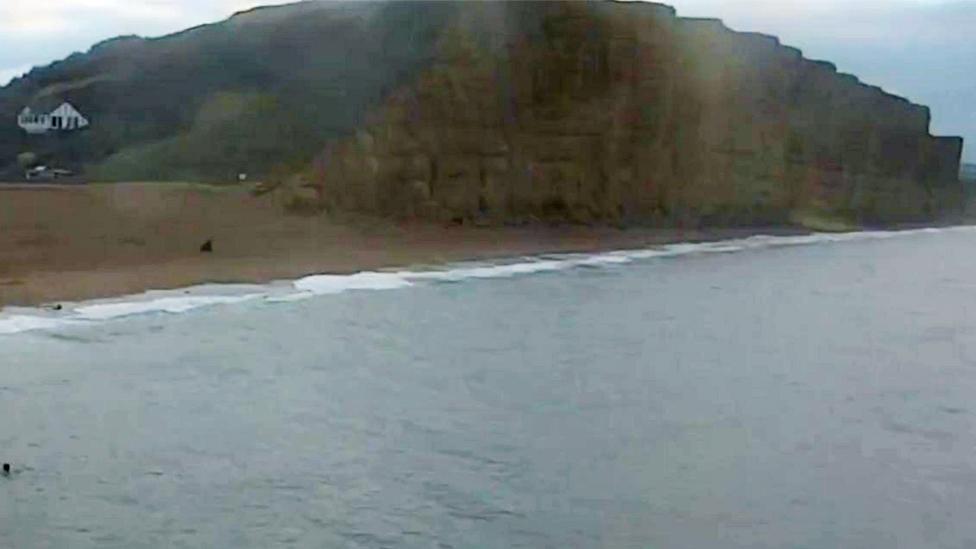Rockfall warning after heatwave in Dorset and Isle of of Wight
- Published
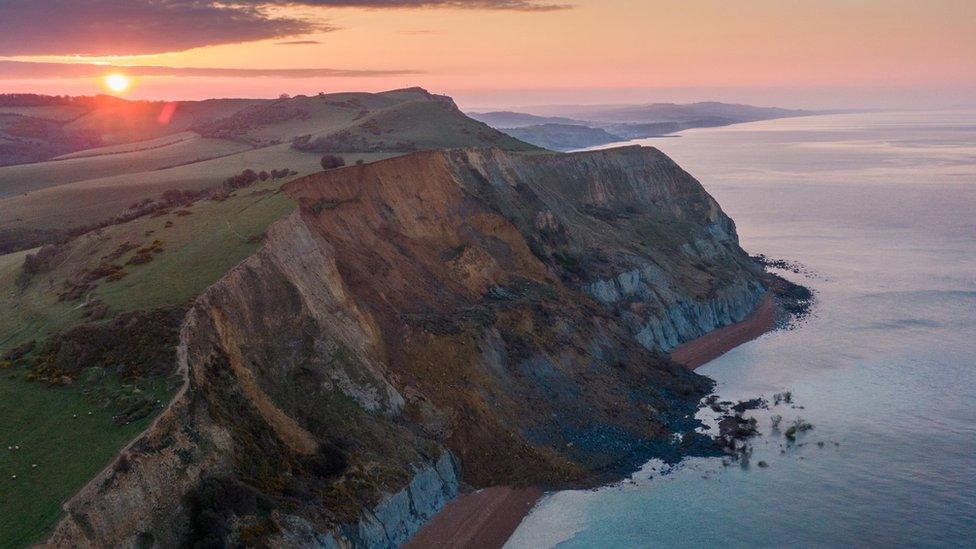
A 4,000-ton rockfall which blocked the beach between Seatown and Eype on the historic Jurassic Coast in April 2021
Warnings have been issued about the dangers of coastal rockfalls as heavy rain moves across the south ending the heatwave and extended dry spell.
The Isle of Wight and Dorset Councils have urged the public to stay away from cliff bases and edges due to an increased risk of collapse.
The Met Office said a yellow warning of thunderstorms was in place for the next two days across the region.
Dry weather caused pre-existing cracks to widen and new ones to form.
The Isle of Wight Council said that made cliffs more unstable and rock falls more likely to happen and the heavy rainfall forecast this week could make the situation worse.
The council said the island's coastline had a number of areas with an increased potential for rockfalls, particularly at Yaverland and along the south west coast at Brook and Compton.
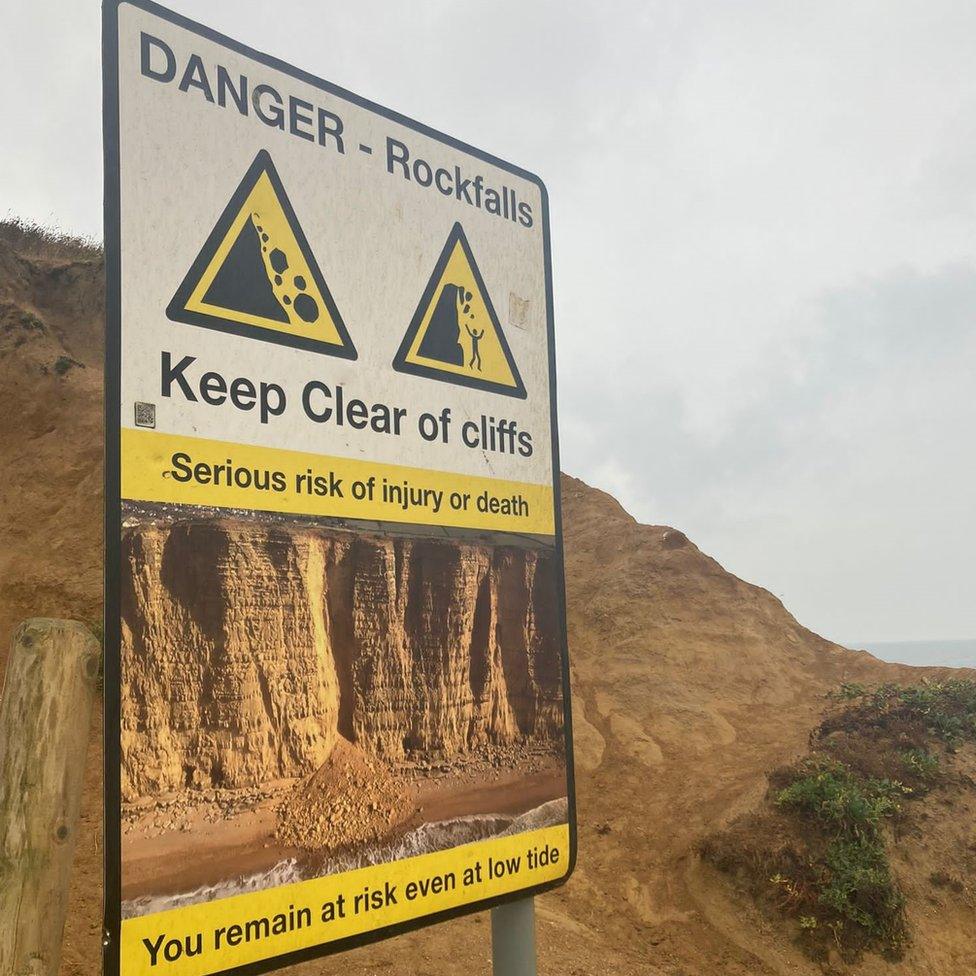
Rockfalls are more likely following the dry period which caused cracks to widen and new ones to form
The sandstone cliffs of West Bay on the Jurassic Coast of Dorset are also known to collapse but the World Heritage Site is still popular with walkers and tourists.
Erica, a geography teacher from Hertfordshire, was running along the cliff tops on Tuesday morning.
"You can see where the rock is quite soft, the rock is not compact it's not going to take much for it to collapse.
But also I noticed the drainage holes along the top are full of litter so they're going to be doing their job draining any rain off the top," she said.
There are large signs warning the public about the dangers of rock falls at West Bay.
University of Southampton climatologist Dr Simon Boxall said the drought-like conditions were very similar to those of 1976 and likely to become more frequent because of climate change.
"We are probably drier now but we're better equipped to deal with it. Our river structures have improved over those decades.
"One of the features of climate change is these extreme dry periods, extreme wet periods, extreme heat, extreme cold and its these fluctuations which are caused by the big oscillations in the jet stream," he said.
The Met Office said the risk of flash flooding was also much more pronounced.

Follow BBC South on Facebook, external, Twitter, external, or Instagram, external. Send your story ideas to south.newsonline@bbc.co.uk, external.
- Published14 July 2022
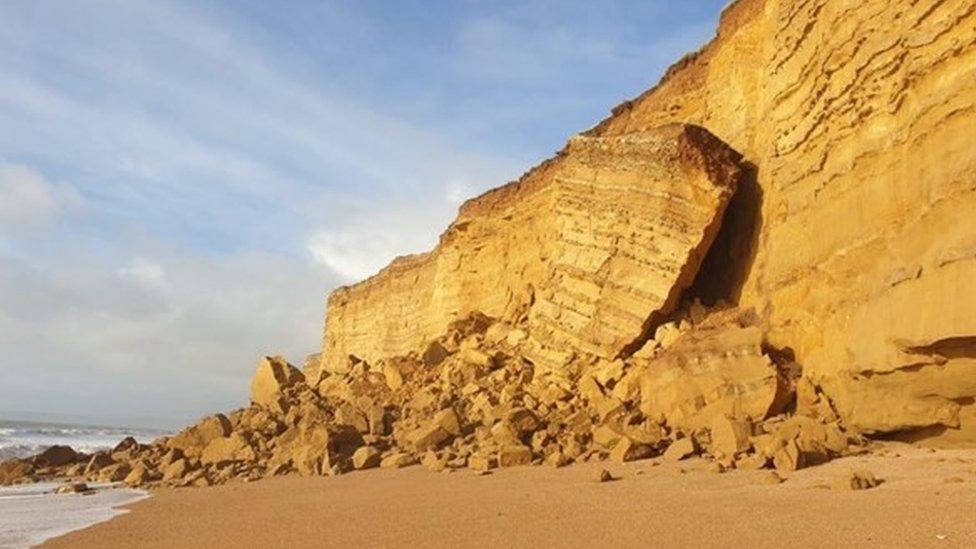
- Published9 November 2021
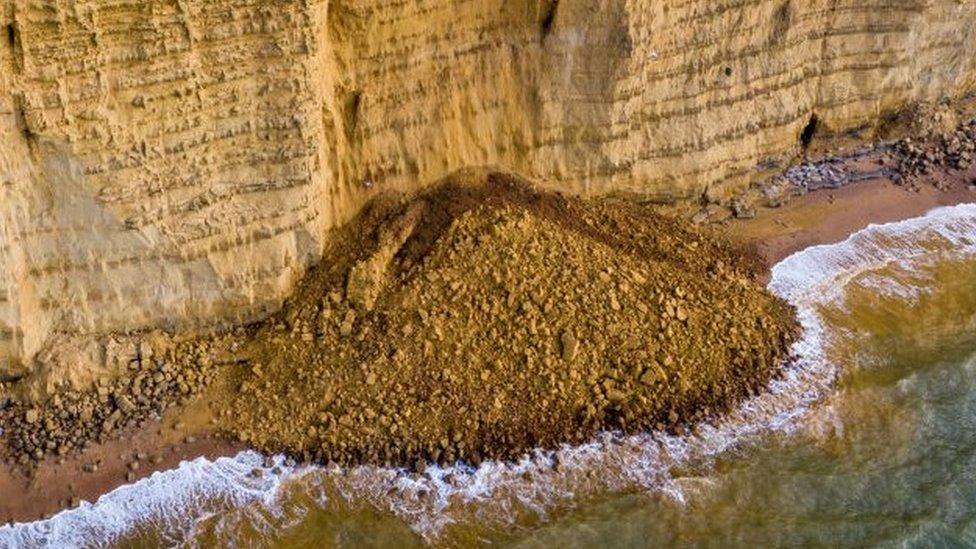
- Published9 November 2021
